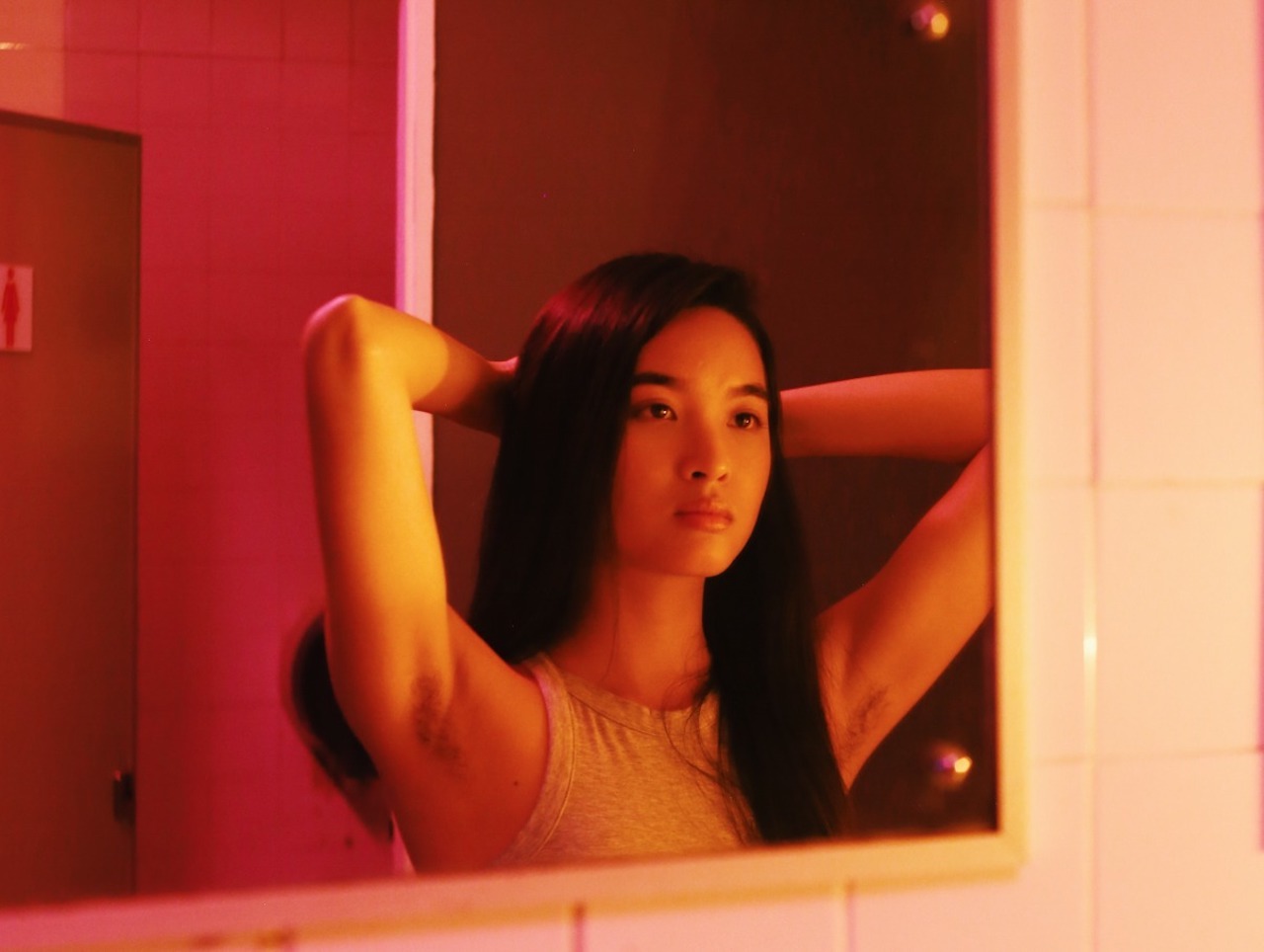Photography by Marisse Caine.
“Once I hit puberty and started to grow hair, my Mum just handed me a razor and said shave,” says Deborah Emmanuel, a writer, performer, and musician.
For show business veteran Audrey Lim, body hair was something that was simply never spoken about. She goes on to tell me a story of her junior college classmate who was mocked for her armpit hair during a swim PE class. That classmate was never seen again after the first 3 months.
This is nothing new. Hairlessness has been a hallmark of feminine beauty for a very long time.
Encyclopedia of Hair argues that ancient Egypt’s Cleopatra was the first person to set the modern beauty standard of going completely hairless. During the days of the Roman empire, hair removal signified both cleanliness and class—but only for women. Later on in 1915, Harper’s Bazaar told us, “The fastidious woman to-day must have immaculate underarms if she is to be unembarrassed.”
And today, we have the quintessential Nivea ad.
Despite all this, more women are starting to make their own choices when it comes to shaving: legs, armpits, and pubes all included.
Yet, it’s still controversial for them to sport armpit hair.
For many women, the reality is that choosing whether to shave is never an aesthetic decision. Rather, they are choosing between whether or not they will be liked; whether or not they will be perceived as attractive; whether or not they will be judged as self-respecting.
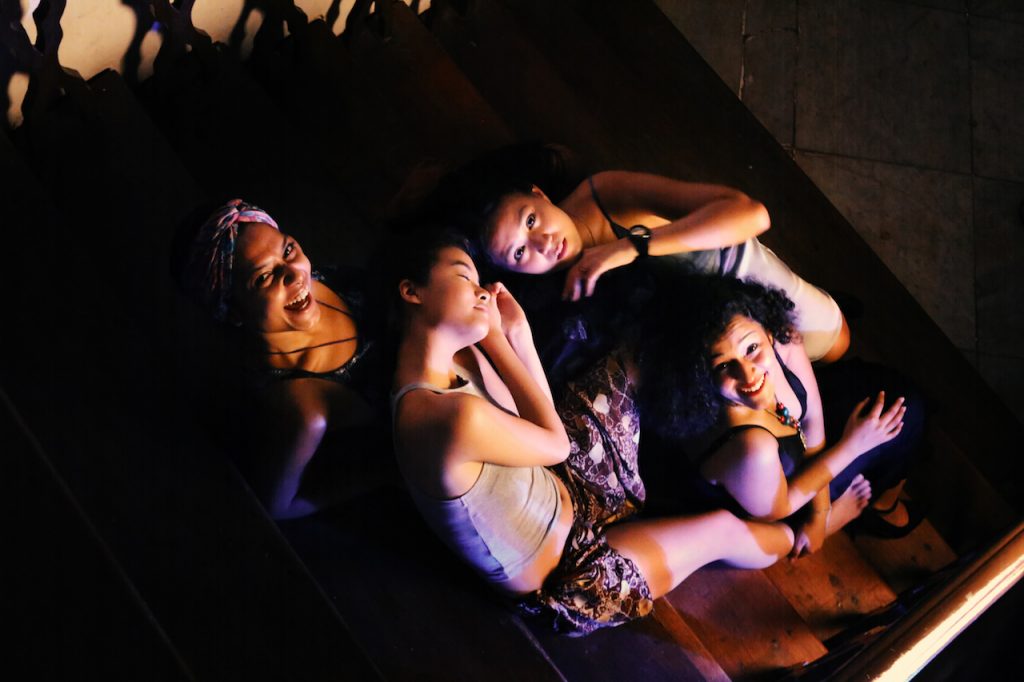
I distinctively remember the first time I spoke to someone who didn’t shave her underarms. I recall thinking, “I do not like seeing that. But rationally, I’m okay with it.”
I experienced an awkward struggle within myself—one that, as a man who has never felt any pressure to conform to any standard of hairless beauty, I did not fully grasp.
Hence, in order to start truly thinking about how anything can be beautiful as long as we let it, I spoke to four women about their diverse experiences with their bodies, along with the hair that grows on it.
Here are their stories.
Cheryl Tan.
Actress, singer.
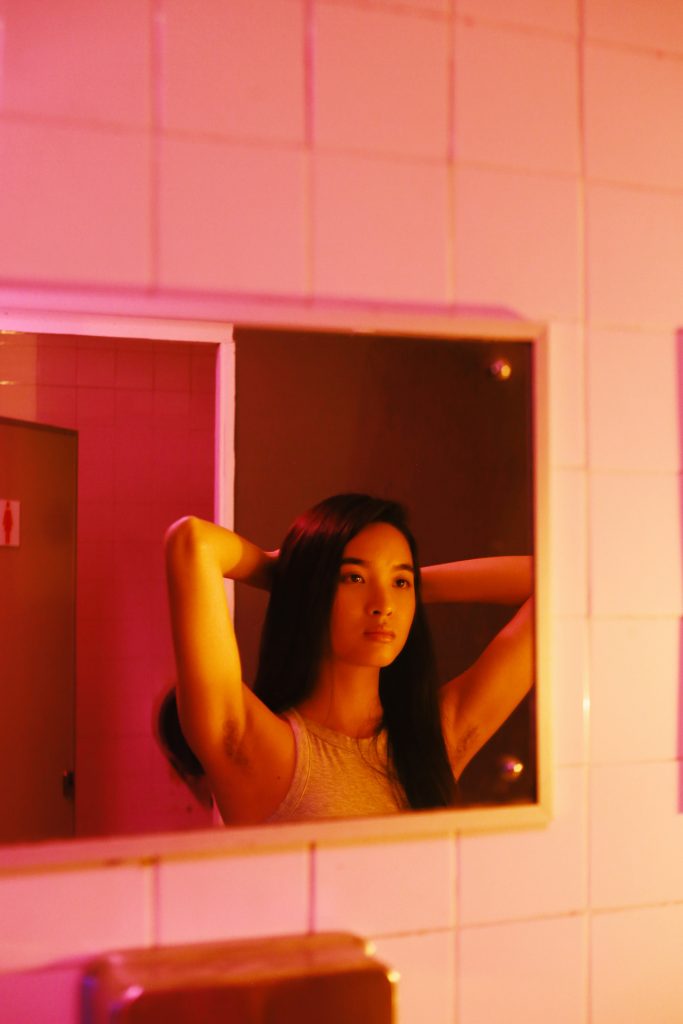
… I like to say my leg hairs are my friends. They keep my legs a little bit warmer. I really appreciated this in the winter when I was at college, but even here, I’m one of those people who gets cold super easily so when I wax, I notice the difference in leg temperature for like, a while. And ingrown hairs are such a pain in the butt to keep track of, have to brush la, it’s painful, who the hell wants to do that?
I always thought I could sort of just be what I wanted to be, but I’m learning that there’s a lot of stuff you have to do if you want to survive. I don’t want to spend my energy on being acceptably hairy. It’s not as dramatic as a rebellious thing; I just seriously don’t think I should have to shave things all the freaking time, seems pretty reasonable right? It’s not that big a deal to me.

But, straight up, it’s been an issue at work twice already. They won’t explicitly tell me to shave but they’re like “We can’t show your hairy pits on TV.” People around me have gotten used to my things, I don’t really need to talk to people about them I just have to go, “Yeah I don’t shave all the time” if they ask, and it’s fine. I am actually starting the policing-body-hair thing, because shit is real and I gotta make money. I’m an actor. It will be better for my career. So I’m gonna put on my big-girl pants and conform to the beauty standard, confoooooooooorm! Yay!
Society has a way of making you feel like you’re not really worth anything if you’re not young and hot. But I can choose to take things as they come, accept that life is short, and trust that body image stuff may come but I can deal with it and be healthy.”
Nupur Saraswat.
Environmental engineer, writer, poet, speaker.
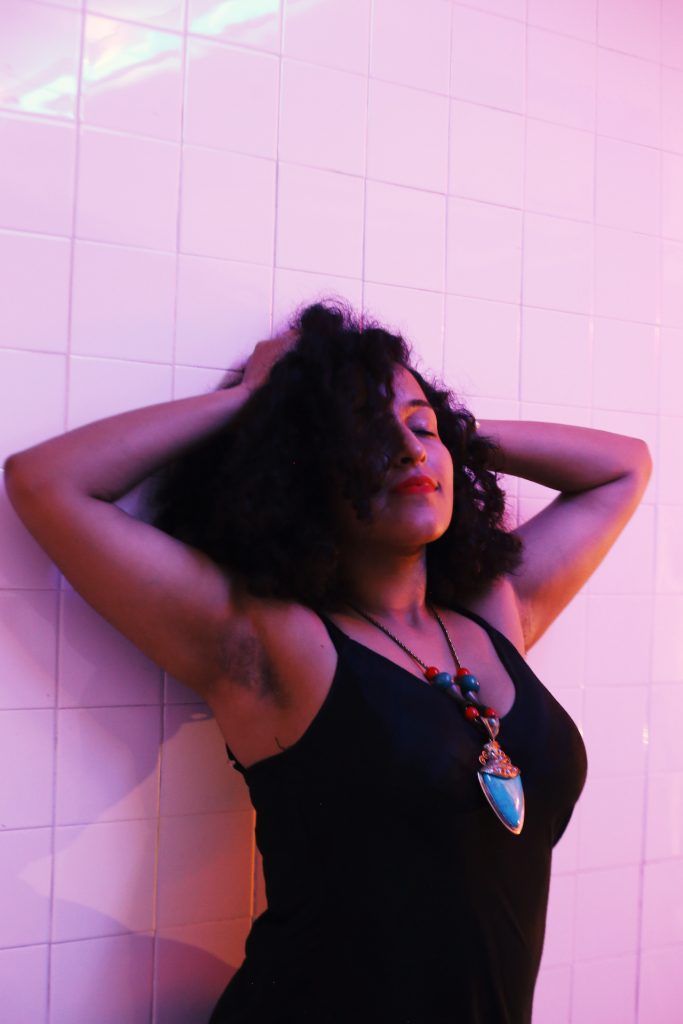
“I hit puberty much earlier than the other girls in my class. I was growing hair in places I hadn’t been told I would, and I was growing about a B cup by the time I was 12. So when I hit puberty before all the other girls in my class, I had the undivided attention of the men around me (including the teachers).
The girls around me were resentful and took it out in various forms. In my 6th year of school, I had no girl friends. I ate alone at lunch break and sat alone in class.
To me, women without body hair symbolised independent women. Women with careers, with interesting lives, and lovers. Women who were feminine, and were wildly accepted as conventionally attractive. Women who could—nah, were allowed to—take charge of their own lives including their sexuality. Maybe because in India the women who were in the public eye were always hairless. Growing up, that’s all I wanted to be—normal and conventionally attractive. Being hairless became a part of it.
I have had partners who have treated my pubic hair like something that could be bartered away – “If I take the trash out today, will you shave?” I have encountered strangers who tell me that it is unsanitary or uncivilised or unprofessional. I have also met strangers who want to give me a high five.
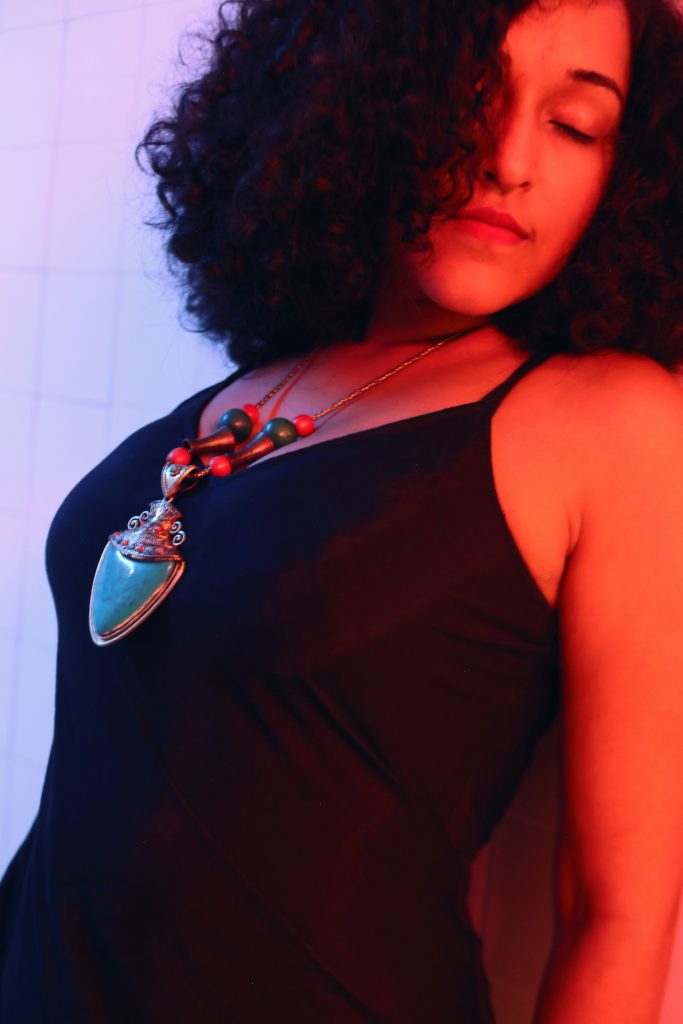
I learned that, especially in Singapore, revealing clothes don’t offend people. Revealing clothes on me offend people. My body hair, my cellulite, my breasts, my hips. My body offends people.
“Is showing skin really necessary?”
These are not vicious comments coming from vicious people. But these become the building block of how you start seeing yourself. Why shouldn’t I be confident? Why is my body an insult?
My mother believes that if I am able to wear long sleeved outfits and hide my arm fat, I look marginally better. My brother thinks armpit hair is “gross.” During a recent wedding I attended in New Delhi, my aunt insisted on painting my nails and putting on henna, because without it, “I look like a chammar*.” In these instances, you realize that it’s not just Singapore where your skin and body is not welcome. It’s everywhere if you let it be.”
*Chammar is the lowest Hindu caste.
Audrey Lim.
Actress, host.
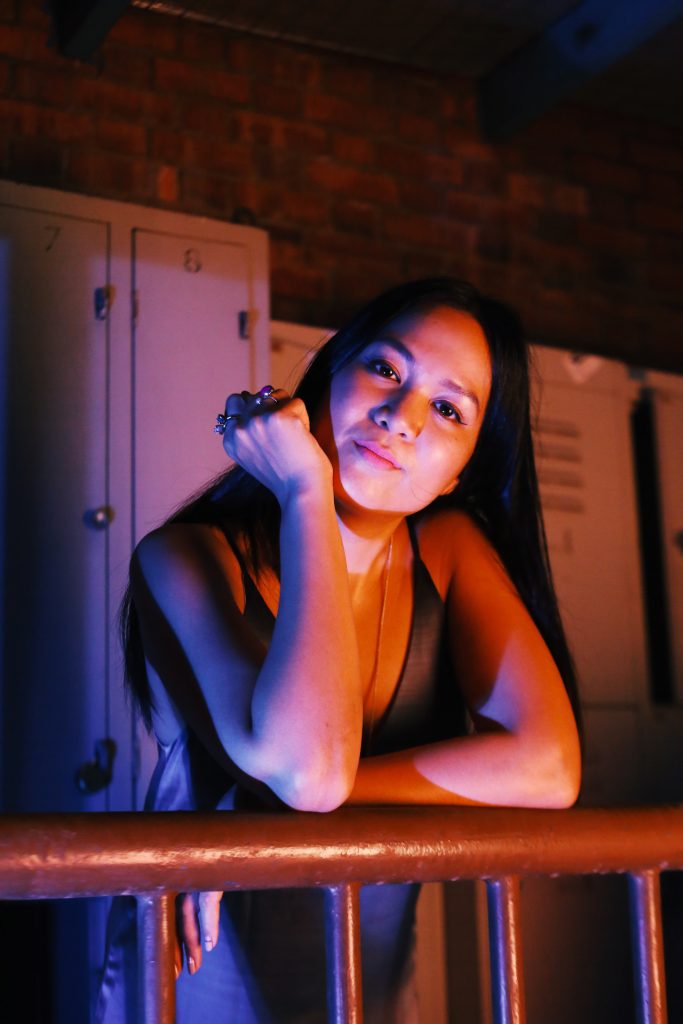
All I got from watching television was the message that body hair is something to be tamed, to be managed and preferably hidden from sight entirely. I never attributed proper meaning to body hair, other than it was an “icky” subject that was best not discussed at all. I only learnt how to use a razor in university, when a boyfriend taught me.
I spent a happy couple of years as a drive time radio DJ. A member of my radio crew made a series of pointed comments about the hair on my leg, pointing out loudly and repeatedly that I had hairy legs.The immediate reaction was self-consciousness, hot shame, and much staring at my legs. I was the only female DJ on the crew. Did having visible leg hair make me less able to fulfil my role as the feminine voice of reason reining in my two silly boys on air? I decided it didn’t. I did, however, wear jeans to work for a few months after the comments were passed.
It takes a lot of gumption to say that you don’t care about what you’re “supposed” to look like. Every day, a woman is assailed by images telling her that she isn’t fair enough, or thin enough, or clear-skinned enough, and cosmetic companies keep coming up with new things for women to feel self-conscious about, from their sun-spots to their (supposedly) wrinkly décolletage.
I’m still in the entertainment industry, and there is a premium placed on girls who conform to a certain look. I used to lose roles because, as a person of mixed heritage, I would inevitably be too “dark” to play certain roles. I could play the sporty best friend (because she had a reason to look tanned), but never the inevitably delicate first leading lady who would always end up played by a fair-skinned Chinese girl with long hair.”
Deborah Emmanuel.
Musician, performer, writer.
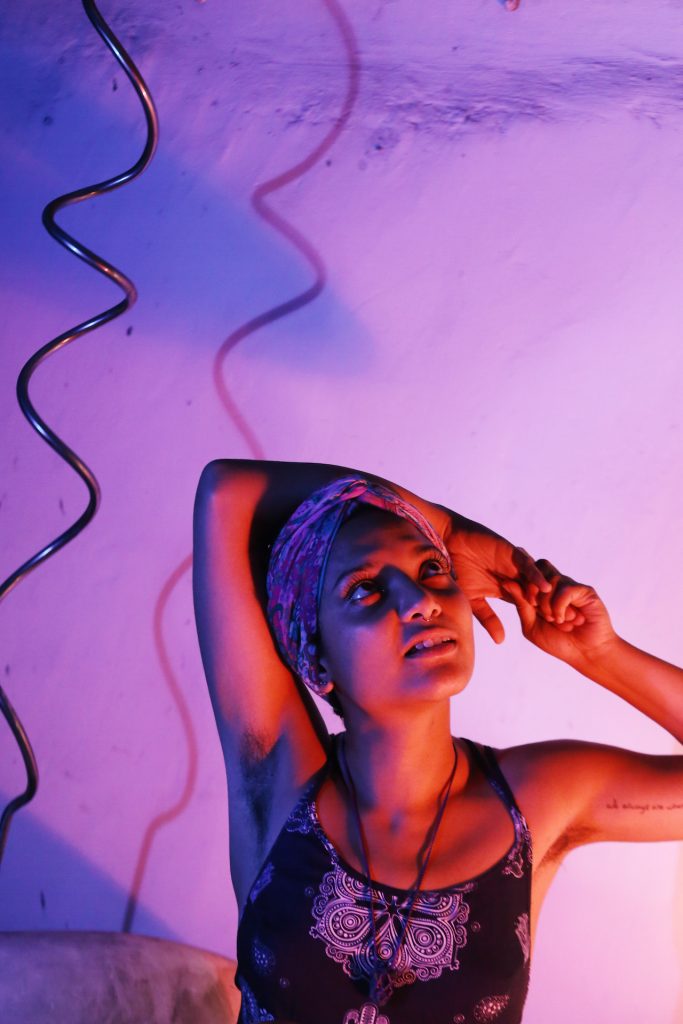
“When I was 13 and started to sprout, my mother promptly bought me a shaver and said, “It’s time.” I didn’t question the ritual until a couple of years ago. When I was in my mid to late teens, I was obsessed with being smooth. It was an obsession with hairlessness provoked by the beauty standards of those around me. I really wished that I had straight hair and fair skin like the girls of Chinese origin around me.
My mind recalls that CLEO beauty editor’s unfortunate spiel about the definition of Singapore beauty, saying something about our “fair, porcelain complexion.” I don’t think that included me. It was a bit annoying growing up constantly having to explain my category growing up. Even now, sometimes. Am I Singaporean??? What? C, M or I? A lot of the time I felt that because I looked different, I wasn’t seen as a Singaporean woman because I couldn’t be clearly understood at first glance. It made me feel erased.
I remember the unhappiness that I was not good enough and the anxiety that my inside beauty would never match my outside beauty. I was driven to shave, to wax, to pluck my eyebrows. Which was difficult because my hair is thick and curly. This obsession was most intense when I was a teen and faded away as I became more aware that some people appreciated the way I looked, brown skin and mad curls included.
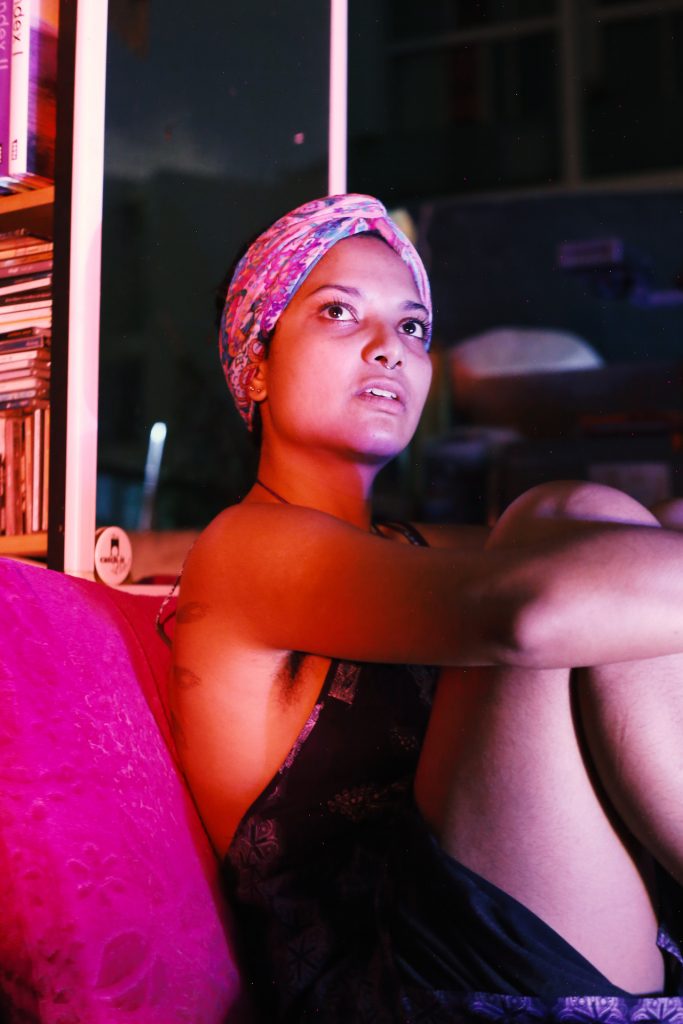
Sometimes, even though shaven, people would make comments about my underarms being dark. Sometimes, people would make comments about the hair on my back. It used to bother me. Now I no longer care.
When I realised I was controlled by my need to be attractive and the attachment to my giant afro, that’s when I had to shave my head. That’s why I now have hairy legs and armpits; I realised the only reason I removed my hair was because of some kind of warped societal pressure and my mother’s instruction.
At some point I found a way to disengage from the opinions of people who are unreasonably disgusted or vocal about my hairiness. I still love them as living beings, but their opinion doesn’t matter to me because I do not really respect their unenlightened judgements. Occasionally I still feel unsafe with my hairiness in public, when I am on a crowded train for example. Perhaps it’s a fear of being Stomped?
I do not think that wanting to be accepted ever goes away, just that I have found better ways to deal with it. My priority is staying true to my beliefs; being accepted no longer takes precedence.”
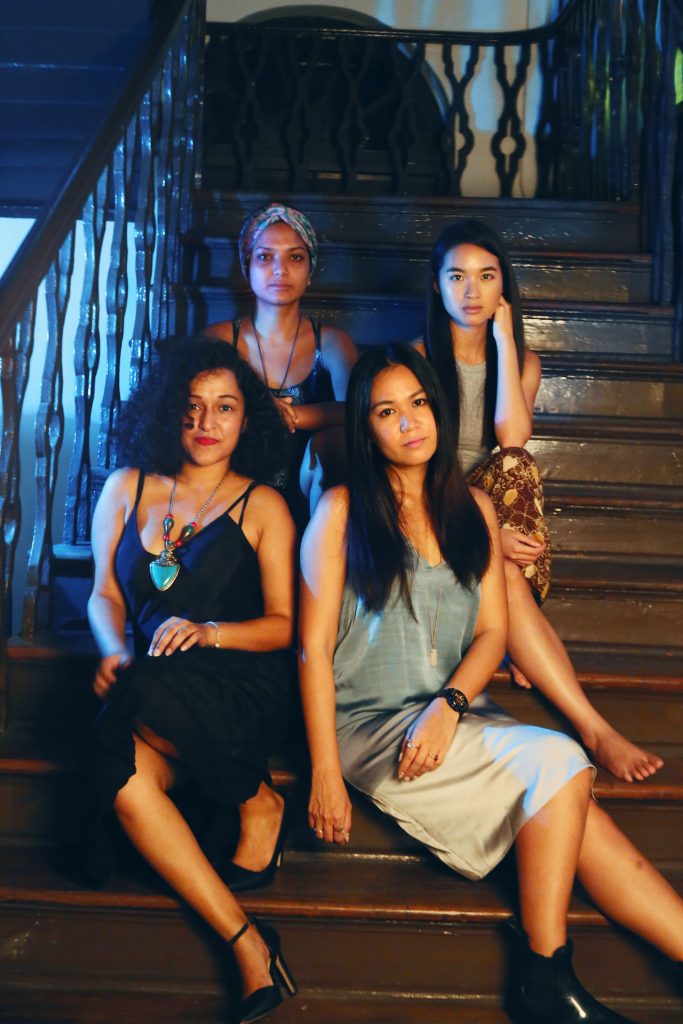
One argument often made against female body hair is that it’s subjective; that we all reserve the right to like or not like it. But many of us don’t realise how dangerous this way of thinking is.
When we declare, “I don’t like it but if you do, that’s fine,” the other person hears only, “I don’t like it.” By directing this statement at someone’s body, we decide that it is their responsibility to make certain choices about their body so that we will like them.
For many women, the simple possibility of not being liked for not conforming to conventional beauty standards is enough to shape their insecurity.
To be clear, this isn’t saying that every woman should stop shaving. The goal, instead, is for us to learn to be completely comfortable with body hair. To become passive, non-judgemental observers of women doing whatever the hell they want with their bodies, and not feel compelled to have an opinion about it.
We have to move beyond subjectivity to recognise that everything is acceptable. Only then will women be able to choose whether or not to display their body hair, and not have to reckon with the consequences of either choice.

